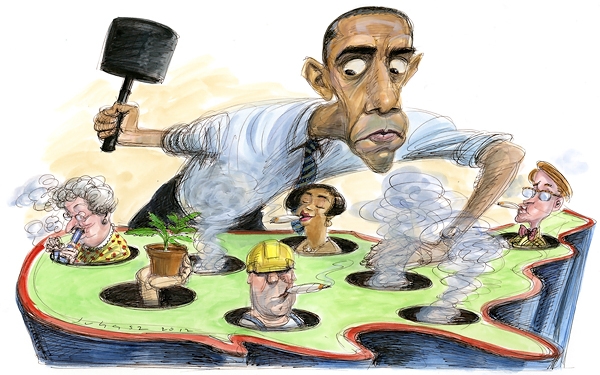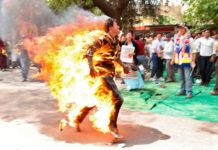He argues that Mexico should go after the most violent criminals, not the ones that move the most drugs. He says the country should quietly end eradication efforts, calling it a “pointless exercise.” “What Mexico can’t do and should not attempt to do is stop the flow of drugs into the US,” says Mr. Hope.
US priorities are also under assault in Central America, where violence and trafficking have migrated after crackdowns in Mexico. In Honduras, DEA squadrons have been involved in three fatal shootouts in less than three months. The teams, called Foreign-deployed Advisory and Support Teams (FAST), have been accompanying local forces throughout Honduras and other countries in Central America.
But the program, which was begun quietly in Afghanistan and expanded into Central America, exploded onto the front pages in May after a group of Hondurans, who claim to be innocent victims, were shot at by Honduran forces, accompanied by the DEA, as they plied the waters of the Mosquito Coast in canoes. Four were killed. Since then, the DEA has been involved in two more fatal incidents.
The US and Honduras have defended the raids, and so does Mr. Braun, an architect of the program. “The government of Honduras is asking for more DEA resources, rather than backing away from the incidents. That is pretty telling,” says Braun.
A US official echoes those sentiments. He says the success so far of Operation Anvil, under which the FAST teams were dispatched in April, is clear: Honduran forces, with DEA support, have interdicted 2,300 kilograms of cocaine from smuggling flights, mostly coming from Venezuela. “It showed us there is unchallenged illicit air traffic going through Honduras, and Honduras has not been able to control it until now,” he says.
More broadly, he notes that the US has put more resources into the “soft” side of the drug fight, not just eradication and hardware but in institution-building and anti-corruption measures. “The old paradigm, the idea of a war on drugs, is long past,” he says. “We realize there are a lot of other pieces of it that go well beyond eradicating a coca field.”
Still, the incidents in Honduras and the perception of a continued militarization of the fight has provoked an outcry from human rights workers and others in Honduras and beyond. “The use of the military has just caused violence to spiral to levels we have never seen,” says Sandino Asturias, head of the Center for Guatemalan Studies.
How far all this change in Latin America, whether in Lopez Vasquez’s backyard or in the presidential palace in Bogotá, will go remains uncertain. But the days of Washington dictation seem to be diminishing. As John Walsh at the Washington Office on Latin America puts it: “No one is taking marching orders from the US anymore.”










